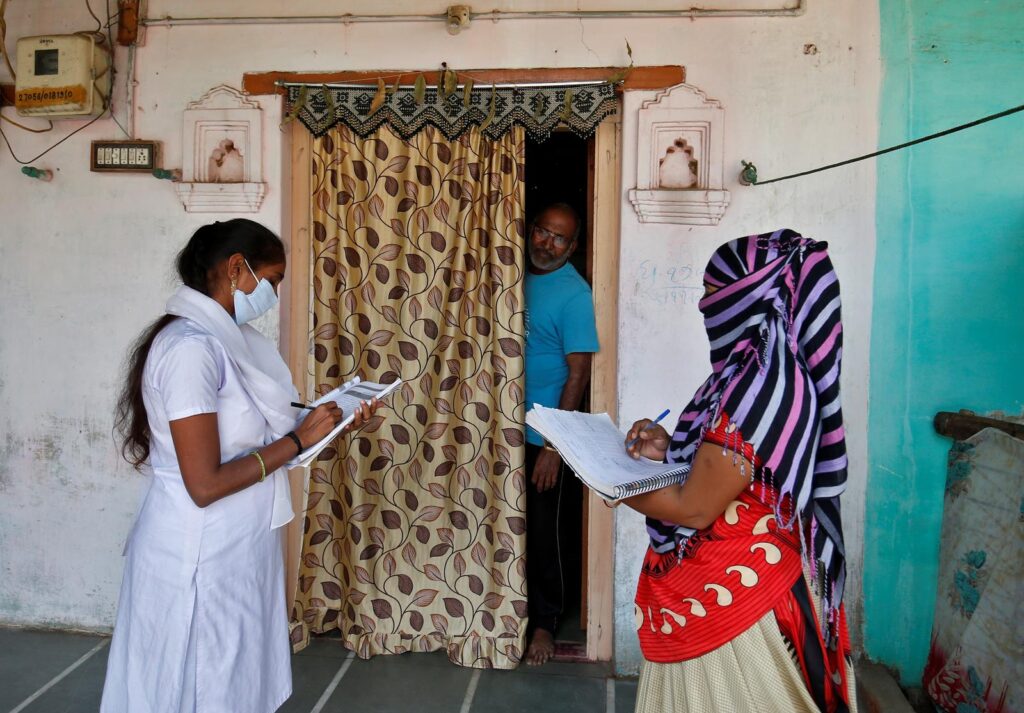Covid-19 Cases: India Reports Lowest Daily Rise Since July 4
Dec 15, 2020 | Pratirodh Bureau
FILE PHOTO: Health workers collect personal data from a man as they prepare a list during a door-to-door survey for the first shot of COVID-19 vaccine for people above 50 years of age and those with comorbidities, in a village on the outskirts of Ahmedabad on December 14, 2020
India reported 22,065 new coronavirus infections, taking its total to 9.9 million, data from the Health Ministry showed on Tuesday, making it the lowest daily rise since July 4, according to a Reuters tally.
India has recorded the second-highest number of coronavirus cases in the world, after the United States, but daily infections have declined since hitting a peak in September.
Deaths rose by 354, the Ministry said, taking the total to 143,709.
Meanwhile, scientists said last week that they had identified genetic variants that made patients more likely to develop severe Covid-19, in a breakthrough that could see new and existing drugs help patients survive the illness.
To determine why some people develop severe lung inflammation when sick with Covid-19, researchers analysed mutations on the genomes of more than 2,000 critically ill patients across Britain. They compared their genetic make-up to that of a control group and identified as many as eight sequences that were more common among the Covid-19 patients.
They found that these sequences are involved in the body’s inflammatory response and how the immune system battles pathogens such as the novel coronavirus. After further computer analysis, they highlighted two specific genes — TYK2 and CCR2 — that encode inflammatory protein molecules.
The researchers found that individuals who produce more of the TYK2 enzyme appeared to be at higher risk of developing severe Covid-19.
“We’re trying to cut through the tremendous complexity of the human immune system to find the levers that we can pull that will change the outcome for the patient,” said Kenneth Baillie, a geneticist at the University of Edinburgh and lead author of the study published in Nature. “The beauty of genetics is that it can predict the effects that a drug might have. The really exciting thing about this study is that we have found genes that are directly therapeutically relevant, so they lead us directly to treatment.”
